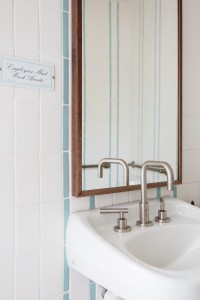
The unfortunate truth is that all homeowners will encounter a problem with their plumbing at one time or another – but when you’re living in an intense Mediterranean climate, the repercussions of that problem can grow larger than you imagined. The drought in California has made obvious how crucial it is to be cautious about the way we manage our water and plumbing. Now that a great deal of California is suffering under the strain of drought, it’s worth learning more about how hot, dry weather can have an impact on your plumbing system, as well as what you can do to save water, prevent problems, and fix issues.
San Diego Climate and Plumbing
Southern California experiences beautiful, sunny weather that seems to continue all year-round. Though there are some benefits to soaking up the sunshine, it’s important to recognize that such a dry climate can also cause issues, especially when you’re trying to focus your efforts on saving water. Many areas of the state are “micro-climates”, wherein the temperatures can vary between coastal regions and inland areas. San Diego has several of these micro-climate areas.
Although micro-climates aren’t necessarily terrible things – they do mean that you’ll always need to keep a close eye on the health of your plumbing system. In areas such as Rancho Bernardo for example, the boxed-in nature of the city means that residents often see their plumbing suffer with changes in weather. Typically, dry weather means low humidity – which is ideal for plumbing. However, when there is dry weather and high humidity – which can be the case in San Diego – problems can begin to appear. Excessive humidity in your plumbing system can be just as damaging as having no water there at all.
Dry weather leads to two unique and pervasive problems within the plumbing system:
-
Pipeline cracks
-
Sewage odors and backflow
Pipeline Cracks
If your particular area has suffered from an extended period without rain the ground can start to dry out and settle – placing excess pressure on your pipes. The less humidity there is within the ground, the more your pipes will begin to age and crack – causing various kinds of leakage. At the same time, excess UV rays and hot weather can also damage plumbing pipes exposed to the open air – if they aren’t coated with insulation.
Though replacing a leaky visible pipe may not seem like a huge challenge, the issue becomes more complex when the pipes are difficult to reach. The best option is to have a professional handle the cracks for you to save making the issue worse, but if you can reach the source of the problem, you may find that using a rubber sheet, leak tape or a compression clamp will help you to manage the issue until the plumber arrives. Remember though, that these are temporary repairs, and not a permanent solution.
Sewage Odors
Sewage odors happen in dry areas because there is not enough water running through the pipes and cleaning them out on a regular basis. Often, residue, dirt, and even dry leaves can fall into your pipes, and if there is no water available to flush everything out, you’re likely to end up with an odor. If enough residue builds up, you may end up with blocked pipes.
Most “do-it-yourself” fixes for sewage odor issues combine using a number of household items such as white vinegar and bleach with a couple of gallons of boiling water. Unfortunately, when you’re dealing with an issue of drought and trying to save as much water as possible, flushing your pipes in this manner is something that you may struggle to do. What’s more, if you have an old home – one built more than 50-60 years ago, you should always contact an experienced plumber and ask them to inspect your plumbing system. Dry weather combined with an aging house creates the perfect atmosphere for frequent plumbing issues.
How are you dealing with any plumbing issues that you’re facing in San Diego this year? Have you found that particular problems are more common because of the dry, hot weather – or has the drought had a significant impact on your pipes? Let us know.

 FREE Live Music and Family Fun at Allied Gardens First Fridays The next Allied Gardens First Fridays Summer Concert in the Park is just around the corner. Grab your lawn chairs, bring a picnic, and get ready to meet your
FREE Live Music and Family Fun at Allied Gardens First Fridays The next Allied Gardens First Fridays Summer Concert in the Park is just around the corner. Grab your lawn chairs, bring a picnic, and get ready to meet your  Ideal Plumbing Heating Air Electrical Named Winner of 2023 Better Business Bureau Torch Awards for Ethics in San Diego (San Diego, CA – September 15, 2023) Better Business Bureau Serving the Pacific Southwest (BBB) has named Ideal Plumbing Heating
Ideal Plumbing Heating Air Electrical Named Winner of 2023 Better Business Bureau Torch Awards for Ethics in San Diego (San Diego, CA – September 15, 2023) Better Business Bureau Serving the Pacific Southwest (BBB) has named Ideal Plumbing Heating